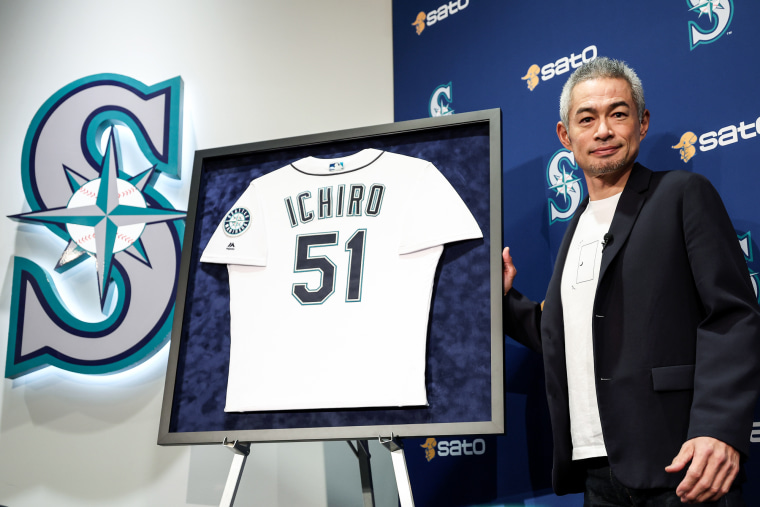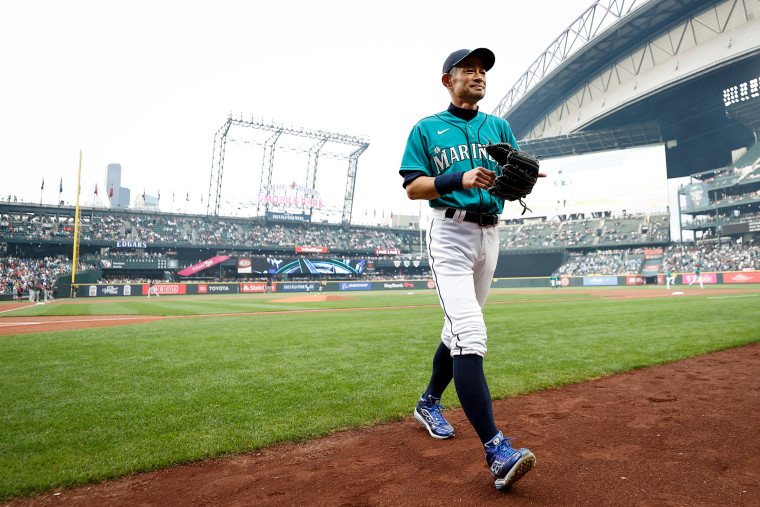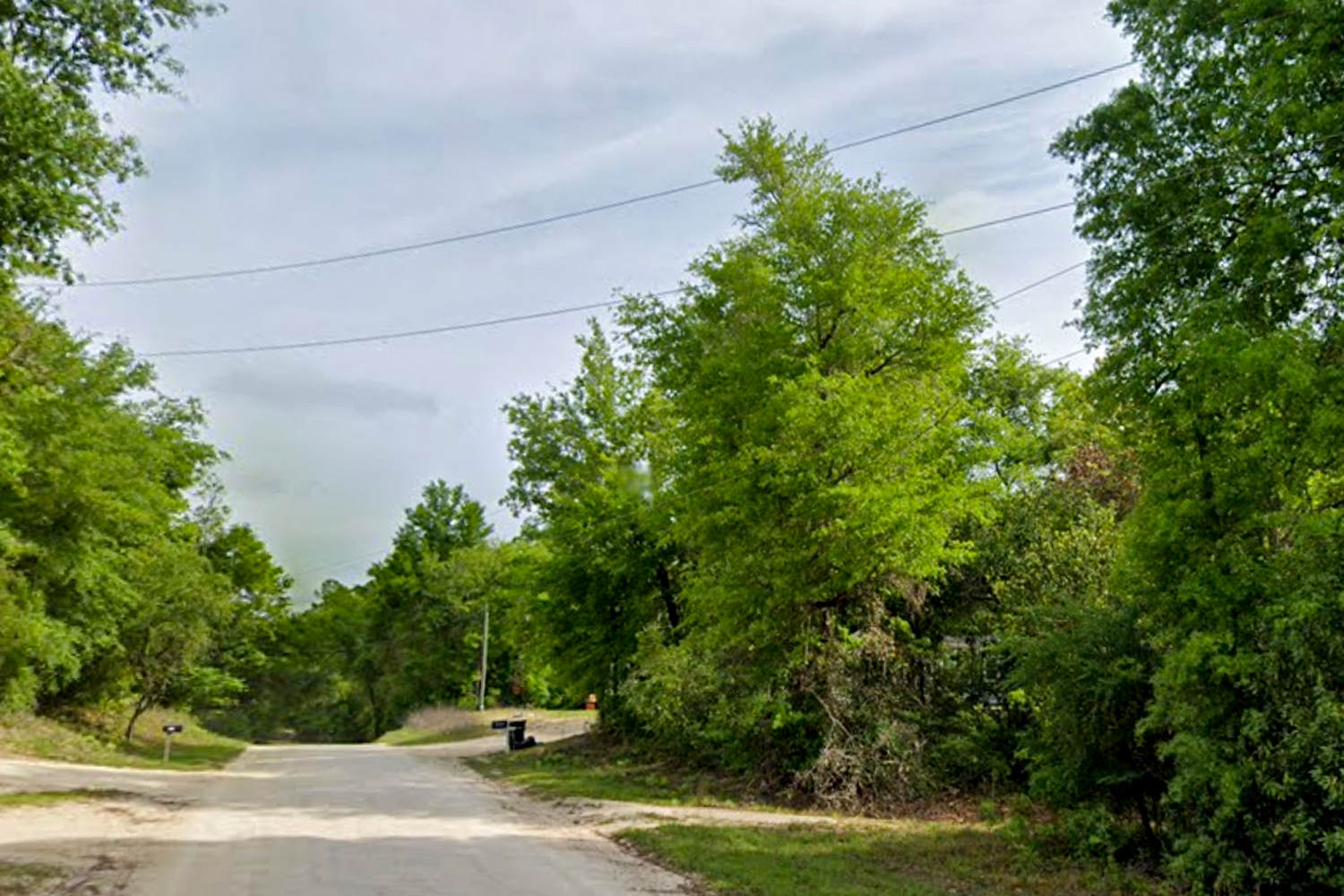As Ichiro Suzuki becomes 1st Asian MLB Hall of Famer, Asian players share how he paved the way for them

For baseball fans across the country, outfielder Ichiro Suzuki’s induction into the Baseball Hall of Fame this weekend is the capstone to a storied career of broken records. But for players of Asian descent, it’s also a profound moment of recognition and visibility.
Suzuki, who spent the majority of his 19 years in Major League Baseball with the Seattle Mariners, will be the first Asian player to be added to the historic hall in Cooperstown, New York. Asian and Asian Americans across the league spoke to NBC News, reflecting on their favorite Suzuki moments and how his performance on the field helped usher in a generation of players who sought to follow in his footsteps.
“He was a player who looked like me: Left-handed, played the outfield,” said Cleveland Guardians outfielder Steven Kwan, who’s of Japanese and Chinese descent. “It kind of gave me hope at a really young age to see that someone who looks like me, plays like me, is able to succeed at the highest level and, not only that, gain the respect of everybody in the league too.”
Suzuki joins starting pitcher CC Sabathia and relief pitcher Billy Wagner as part of the class of 2025 to be inducted on Sunday. Other inductees include the late right fielder Dave Parker and first baseman Dick Allen, who died in 2020.
Suzuki, who missed a unanimous selection by a single vote, began his U.S. career in 2001 as the first Japanese position player to join MLB. While he wasn’t the first ever player from Japan to join the big leagues — pitcher Masanori Murakami played a short stint with the San Francisco Giants in 1964, and Los Angeles Dodgers pitcher Hideo Nomo had a 13-year career in the States — Suzuki was by far the most successful.

In his almost two decades in the league, Suzuki made a name for himself as an elite contact hitter and a defensive genius who was also known to ham it up for those who played with him and serve impeccable style. His career includes 10 All-Star selections, 10 Gold Glove awards and three Silver Slugger awards. His time in MLB contributed to more Japanese players exploring careers in the U.S.
Kwan, a two-time All-Star and three-time Gold Glove winner in his own right, said growing up, it was critical for him to see a player who never hid his Japanese heritage, always embraced his background and took the field as simply himself. Suzuki’s baseball IQ also made a lasting impression on the Guardians outfielder. When Suzuki was on the Miami Marlins in 2015, he faked out Joaquin Arias of the San Francisco Giants, keeping Arias from scoring on a double to the right-field wall.
“He was near the end of his career. … And even in his older age, he still had the baseball IQ to make it look like he was going to catch the ball, field the ball off the wall cleanly,” Kwan said. “I just remember that at the end of his career he was still making an impact. That was special to me.”
Arizona Diamondbacks outfielder Corbin Carroll said that as an Asian American who grew up in Seattle and frequently attended Mariners games, he was similarly in awe of Suzuki. Carroll, who’s of Taiwanese descent, said he still remembers sitting in the right-field bleachers with his family as his mother snapped a photo of Suzuki striking his signature pose.
“That’s one of my earliest memories. The photo I kept in my room as I was growing up and still have to this day,” Carroll said.
Carroll, who in 2023 became the first Asian American MLB Rookie of the Year, said that all those years watching the Japanese trailblazer “made me feel like maybe one day I could do it and play at that level,” he said.

“When kids grow up seeing someone who they can relate to in some way, it can inspire them and give them hope to do something big,” Carroll, a two-time All-Star, said.
Suzuki previously told NBC News that he didn’t set out to “perform for Asians” but was more than aware that his performance would impact the group in addition to his home country of Japan. And he had to excel.
“As a player from Japan, as a guy that had led the league in hitting all seven years, and then coming over being a first position player, I knew that I would be judged. And Japan baseball will be judged on how I did,” Suzuki said. “If I wasn’t able to produce, then they would judge Japan baseball as being at a lower level. And so that pressure was there and that’s what I had to carry.”
Bryan Woo, an All-Star pitcher for the Mariners, admitted that as a player of Chinese descent from Oakland, California, he may not have been the biggest Seattle fan growing up, but he was a fan of Suzuki’s. Woo said he was particularly struck by Suzuki’s performance in the 2007 All-Star Game in San Francisco, during which he hit an inside-the-park home run. Suzuki, who was crowned MVP of that game, went 3-for-3 that night. And his dinger remains the only inside-the-park home run ever hit during an All-Star game.
Woo said that these days, Suzuki, who still works for the Mariners as a special assistant to the chairman, continues to dispense his wisdom, ensuring that progress doesn’t stop with his own playing career.
“Guys that have his career and his caliber don’t have to do stuff like that, but people that do that go out of their way. That means a lot.” Woo said.
Ultimately, Kwan said, Suzuki’s place in the Hall of Fame is symbolic of a new era.
“I think it’s just showing that one person needs to pave the way for a whole generation to believe that they can play baseball,” Kwan said.





